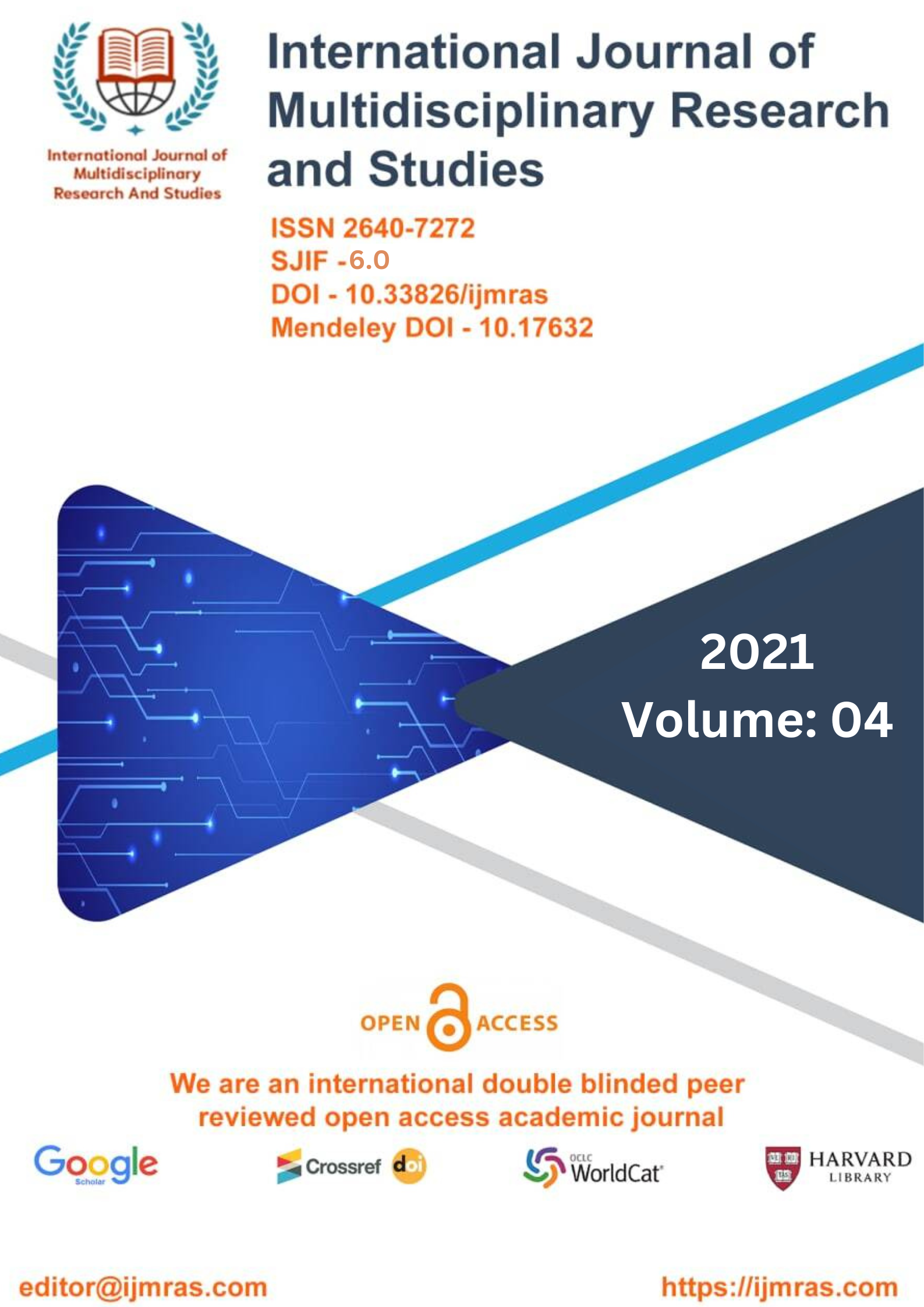SOCIO POLITICAL THOUGHTS IN INDIAN JAIL LITERATURE

Abstract
Modern society's responses to crime take many various forms and have a wide range of goals, all of which converge on crime control. In order to transform criminals and prevent them from committing crimes in the future, society needs to implement reformative practices, establish rehabilitative initiatives, and rehabilitate offenders. In jail, the "reformation" process might take place. Insofar as society desires defense against criminals. By separating criminals from society, the jail accomplishes this goal by preventing criminals from having the opportunity to harm society. The organization also anticipates reprisals The same and equal treatment must be given to offenders in prison since they have caused harm and made public life unpleasant. These are some of Robinson's goals for jail, to name a few. In the 18th century, the use of jail as a form of punishment replaced corporal punishment. The attitude of humanitarianism that emerged throughout the enlightenment is without a doubt one of the factors that contributed to the replacement of jail for physical and lethal punishment. People started to understand the horrors entailed in how society dealt with criminals. French thinkers like Voltaire pushed for improvements to the criminal justice system because they were shocked by what they dubbed "judicial murder." In the past, incarceration was used to punish people who had broken the law by causing them physical agony, much like the pound of flesh in Shakespeare's Merchant of Venice. In contrast to this idea, modern incarceration is now designed to focus on a person's intellect as well as his body through three main areas, including
punishment, deterrence, and rehabilitation. These three distinct areas, when linked
together into a single process, are meant to enable society to: remove criminals from a situation where they may continue their criminal behavior; place them in an institution that satisfies the masses' desire for some form of retribution; convince other potential criminals that such activities are not beneficial; and eventually mold them into productive and law-abiding citizens through positive psychological conditioning who may later be elected to public office.
Keywords
Literature, Thoughts, Political, ThemesHow to Cite
References
The Untouchables and The Indian Constitution or Mr. Gandhi and the Emancipation of the Untouchables. Bombay: Thacker and Co. Ltd.1943. Print.
Who were Shudras? How They came to be the Fourth Varna in the Indo-Aryan Society? Bombay: Thacker and Co.Ltd.1946. Print.
Chatterji, Suniti Kumar. World Literature and Tagore. Shantiniketan: Visvabharati Press, 1971.Print.
My Experiment with Truth. Ahmedabad: Navajivan, 1929. Print.
Delhi Dairy (Prayer speeches from 10-09-1947 to 30-01-1947) Ahmadabad: Navjivan Pub. House, 1048. Print.
Autobiography. New Delhi: Vikas Publishing House, 1976. Print.
Precepts of Jesus: The Guide to Peace and Happiness. London: The Unitarian Society, 1620. Print.
Roy, Arundhati. “The End of Imagination,” An Ordinary Person’s Guide to Empire. New Delhi: Viking, 2005.Print.
Anand, Mamta. S. Radhakrishnan: Life and Works. New Delhi: Atlantic Publishers, 2006. Print.
Bhattacharya, Bhabani. Gandhi, the Writer. New Delhi: National Book Trust, 1969. Print.
Paranjaype, Makarand. Sri Aurobindo Reader. New Delhi: Penguin, 1999. Print.
Sarojini Naidu- Selected Poetry and Prose. New Delhi: Harper Collins Publishers, 1993. Print.
Bain, F.W. An Incarnation of the Snow. London: Dent and Sons, 1908. Print.
Bhattacharya, P.C. Indo-Anglian Literature and The Works of Raja Rao. Delhi: Atma Ram and Sons, 1983. Print.
Naikar, Basavaraj. Critical Response to Indian English Literature. Delhi: Shanti Prakashan, 2003. Print.
Narasimhaiah, C.D. English Studies in India- Widening Horizons. Delhi: Pencraft International, 2002. Print.
Rao, U.R. Mahatma Gandhi- The Man and His Mission. (Ed.G.S.Pohekar) Bombay: United Asia Publications, 1971. Print.
License
Copyright (c) 2021 Afrin

This work is licensed under a Creative Commons Attribution 4.0 International License.
Individual articles are published Open Access under the Creative Commons Licence: CC-BY 4.0.




